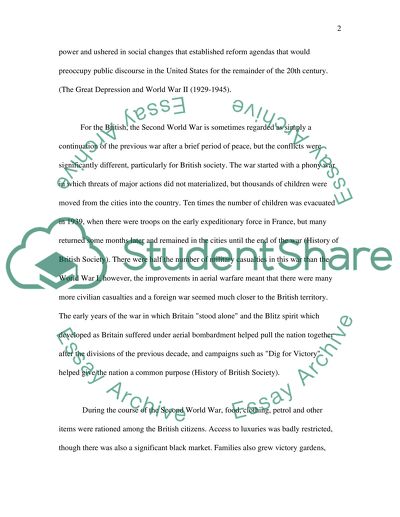Cite this document
(“Comparing the Effects of the Second World War on British and American Essay”, n.d.)
Retrieved from https://studentshare.org/sociology/1525381-comparing-the-effects-of-the-second-world-war-on-british-and-american-society
Retrieved from https://studentshare.org/sociology/1525381-comparing-the-effects-of-the-second-world-war-on-british-and-american-society
(Comparing the Effects of the Second World War on British and American Essay)
https://studentshare.org/sociology/1525381-comparing-the-effects-of-the-second-world-war-on-british-and-american-society.
https://studentshare.org/sociology/1525381-comparing-the-effects-of-the-second-world-war-on-british-and-american-society.
“Comparing the Effects of the Second World War on British and American Essay”, n.d. https://studentshare.org/sociology/1525381-comparing-the-effects-of-the-second-world-war-on-british-and-american-society.


